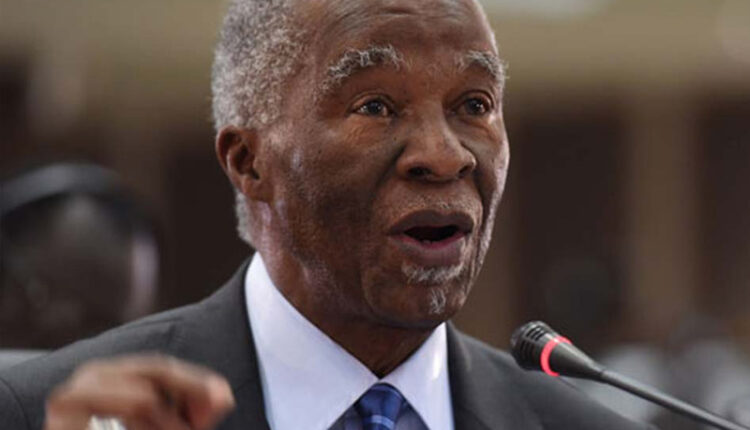A leader of the African National Congress (ANC) and South Africa’s former president, Mr. Thabo Mbeki has said that the declining fortunes of African nations was due to the resort to tribalism by the peoples of the continent.

Mbeki made the statement in a speech he delivered at the Thabo Mbeki Foundation centre, Johannesburg on Thursday during the hosting of the third cohort of the MTN-MIP Fellows who paid him a visit after concluding a two-day Media Innovation summit on “Sustainability of the media business in the digital age.”
The former South African leader who also decried the restrictive visa regimes among African nations called on African leaders to take bold political steps to unite the people of Africa noting that until Africa realises their common situation and destiny the continent may be doomed.
He called on leaders to take the cue from former Tanzanian leader, Julius Nyerere who took the bold decision to unite the then Tanganyika beyond ethnic and tribal boundaries.

He noted that African nations have rather continuously retrogressed by abandoning their peoples and opportunities and have instead embraced foreign subjugative ideologies that have rather diminished the continent.
He, therefore, called on African leaders to embrace the political will-power that will unite the continent and mobilise the people for development.
Part of his speech reads:

“Political will to manage diversity is central to the survival of all of the African states, because there’s no African state which is not characterized by the diversity of its population now.
“And so if you want to keep a continent or a country together, there’s got to be a conscious political decision. There is one outstanding example in this regard – Tanzania.
“When Tanzania was known as Tanganyika, there were two very important decisions under Julius Nyerere to keep the whole country together. One of them was to have one central languag
“Nyerere decided that everybody must speak Swahili and abandon tribal or regional languages. So, everybody speaks Swahili. The second decision was the abolition of the institution of chieftaincy ship. So there’s no chief of this tribe or that tribe.
“These were conscious decisions taken by the political leadership. They wanted to build one nation out of the Tanganyikans, and it’s worked.
“So because the people of Tanzania have gotten used to being one, even some few years back when some political people, in Tanzania, started resurrecting this matter about tribal identity in order to advance their own political futures, the consciousness one united Tanzania, was strong enough to defeat them.
“So, that’s why I’m saying it’s a political decision here. South Africa is very fortunate in that respect, because you know, the diamond mines, which were first discovered in the 19th century, attracted people from Southern Africa, from as far as Angola among others to South Africa.
“Then a bit later, gold mining came and domestically, there was a lot of movement of people, and social economic development. Recall that at the formation of the African National Congress in 1912, one of its principal slogans was to bury the demon of tribalism
“So since the beginning of the 20th century, you’ve had a political organization whose task was to make sure that all of this algorithm come together so that you see you got to a point before liberation here, if you said in 1960 to the African community here, wherever you are in the country, you say, who’s your national leader? They would say Alberto.
“So, what has happened on the continent is a regression from the kind of pan-Africanist commitment that we had with other earlier leaders on the continent, and the weakening of that resolve has negative consequences like the frosty relationship between South Africa and Nigeria. Another is the poor Visa regulation which has made it very difficult for cross border trade.
“And, now addressing the challenge is to address the larger political problems. The point is always being made about the relationship between the artists, Nigerian, South African artists, and what they are able to do.”

